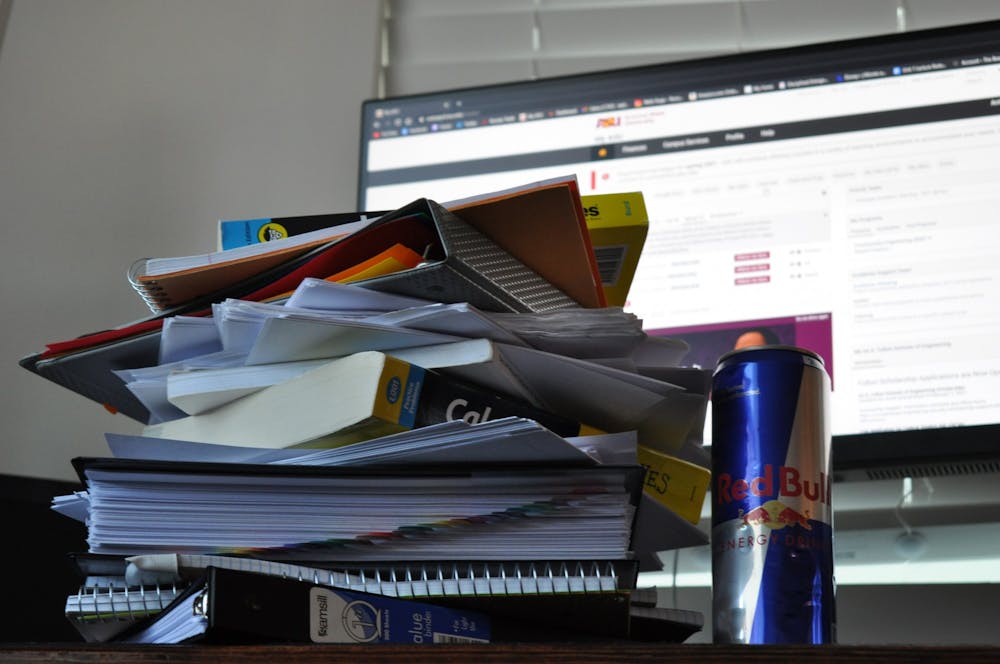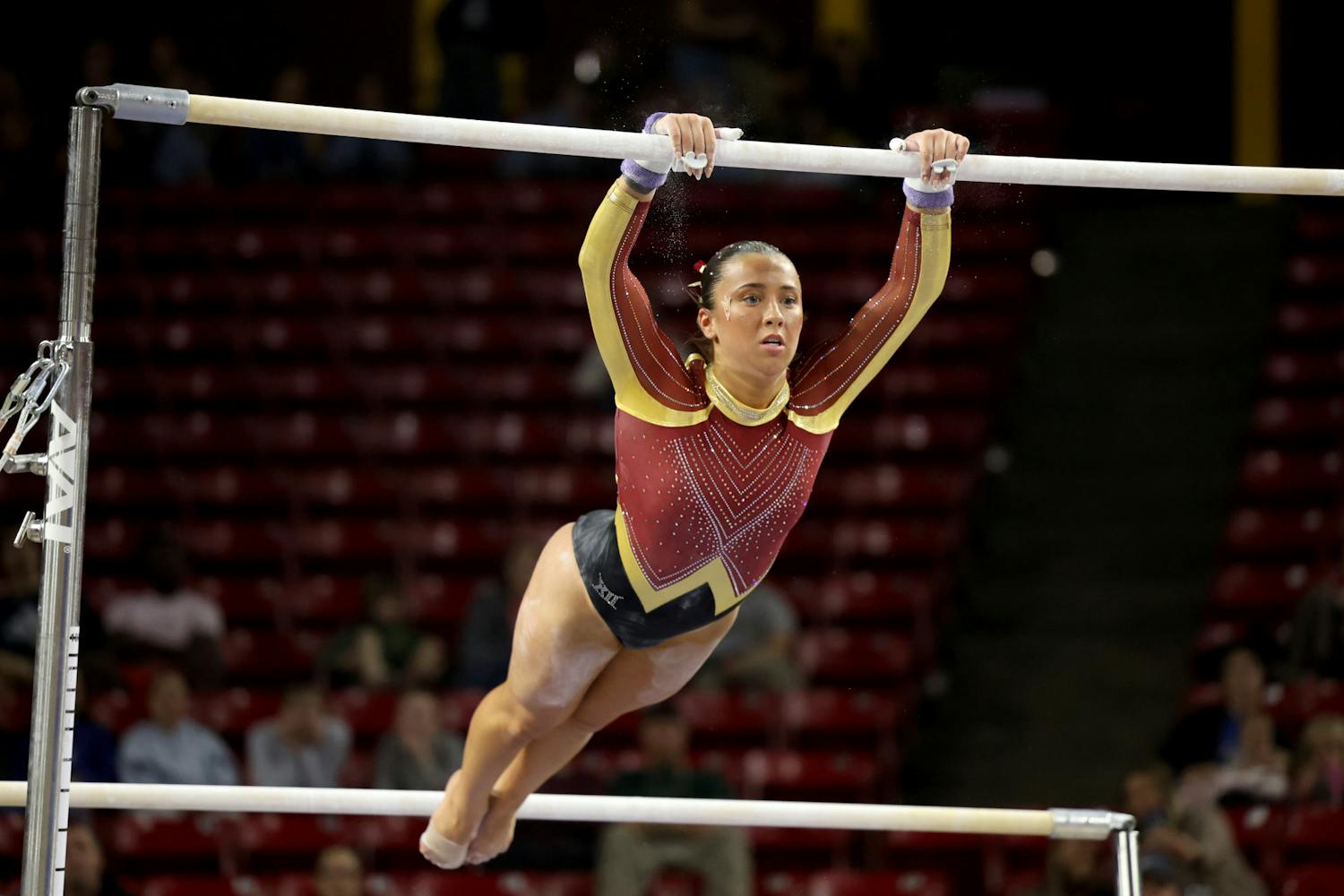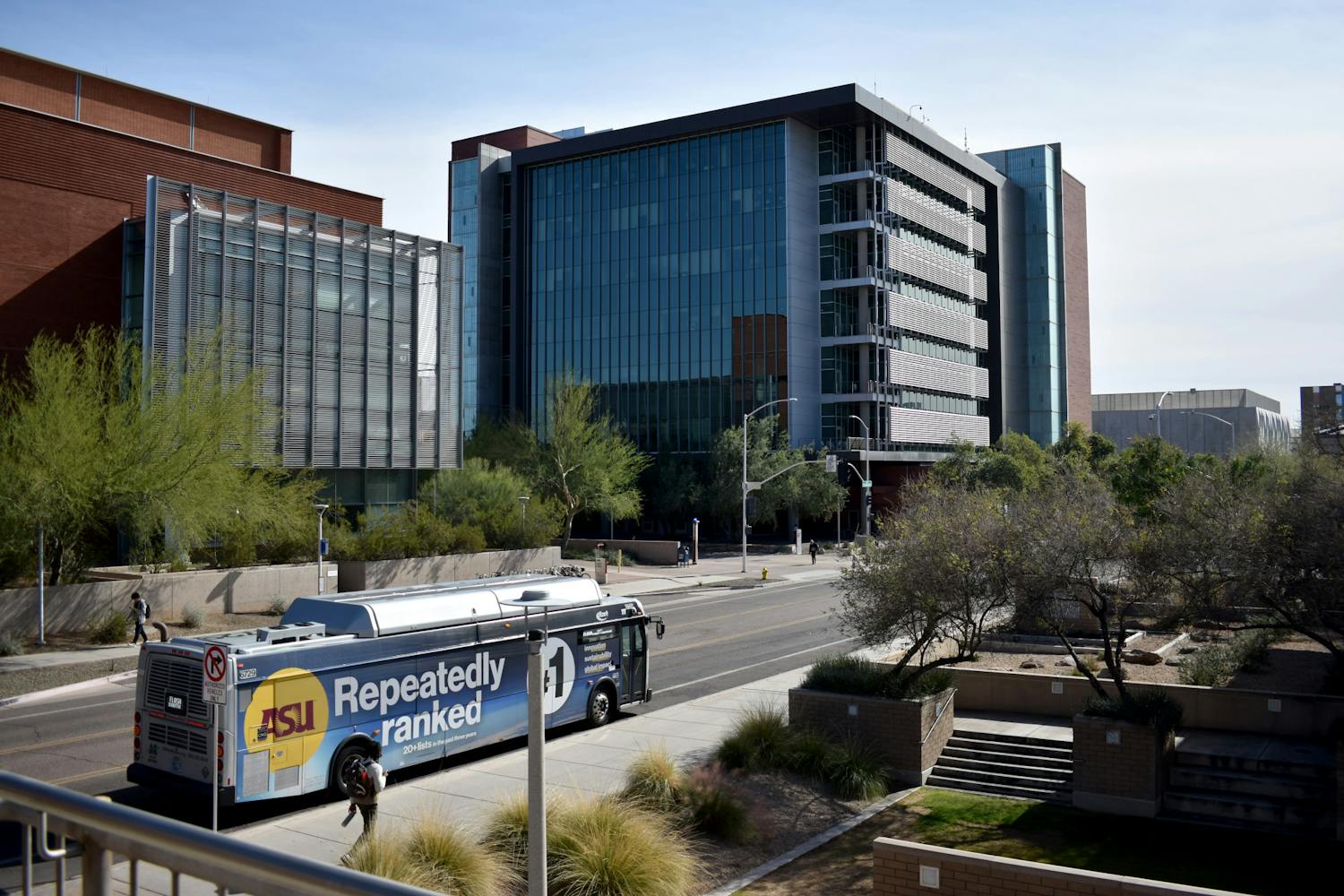“I only got five hours of sleep last night!”
“That’s nothing, I only got three.”
We’ve all had this conversation with one of our friends or classmates. College students feel the need to compete with their peers over who has gotten less sleep, who is eating a worse diet and who has the most homework. Working yourself down to the bone and focusing more on school and work than on your physical and mental health is becoming the norm.
Hustle culture is the phenomenon of people, particularly young people, feeling they need to work as hard as they possibly can. It may include staying up until sunrise to complete assignments, regularly using caffeine as a replacement for sleep, never taking days off or overloading your schedule to stand out from the crowd. Some young people even report feeling guilty when they do not work themselves as hard as they believe they should.
It’s no surprise so many young people are experiencing record-high levels of stress and anxiety. In 2019, Generation Z was reported to be the most anxious generation, with 54% reporting feeling stressed at least once between the months of April and May, by the Wall Street Journal — and that was before the pandemic.
Who can blame us? Since the beginning of our schooling, we are taught “grinding” is just good work ethic. Many students take several AP or Honors classes so they can get into college, then they have to exert themselves nonstop in college to get a good job (not to mention having to work while in college to pay the tuition).
It's exhausting.
During the COVID-19 pandemic, many people went through some type of traumatic experience. Not only were we expected to keep working, but we were being told this was actually the perfect time to get things done. Write a book. Learn a new language. No days off!
Even now, many of us may still be going through a difficult time. We are expected to brush ourselves off and get back to work. This is the message many universities across the country sent when they suddenly transitioned to virtual learning while expecting the same amount of productivity from their students and faculty.
ASU was no exception. Many students reported feeling overwhelmed with this change.
Teri Pipe, founder of the Center for Mindfulness, Compassion and Resilience at ASU, says the University values innovation and wanting to make a positive impact on society. She said these are good values to have, unless they are taken to an extreme where individuals forget to focus on themselves. She noted the pandemic has exacerbated this trend of working ourselves into overdrive; however, hustle culture has been an issue even before COVID-19.
This brings up the question: Is all of this hard work healthy?
The term toxic productivity refers to an unhealthy obsession with productivity, a habit Pipe called "dangerous to ourselves or to others" while also feeling like one can never get enough done, leading to a vicious cycle of overworking oneself.
The only difference between hustle culture and toxic productivity is scale. Toxic productivity is an issue on a more personal level, while hustle culture is more of a wide-scale phenomena, with an emphasis on normalizing the latter.
Even when it is time to relax, many students feel they are unable to rest. They feel a need to be doing something, and this can lead to feelings of guilt when one decides they need to take a break. This cycle can consequentially invoke anxiety or insomnia. Several students take melatonin to help with sleep, but it can get worse. Students can develop unhealthy habits such as drinking, drug use or smoking. Some even report taking drugs like Adderall when they need to complete a large amount of work.
Going virtual has made this issue even more rampant. Since we are all online, we feel we need to constantly be available. The line between work and leisure has become nonexistent, and people feel as if they cannot escape anymore because their workplace is now in the comfort of their home.
"There are a lot of roles that (students) are playing, and now the lines between these roles have been blurred," Pipe said. "I have students who are parents, but at the same time, they're trying to work or be a student."
So how do we escape from this cycle? Start by setting realistic goals for yourself. Talk to yourself kindly. Hold yourself accountable when you begin overworking yourself.
"Be conscious of what is creating your stress," Pipe adds. "And then examine your expectations and think about if they're realistic or not. Stress often comes from expectations that aren't being met. Talk to yourself like you would your best friend."
Set boundaries for yourself to ensure you have enough time in your schedule to exercise, eat and sleep. Aim to get at least seven hours of sleep, eat adequate portions every day, don't answer emails related to school or work on the weekend and turn off your phone two hours before bed.
Pipe ended by stating students who are struggling with their mental health are not alone. Students who feel they are having trouble managing their stress levels can reach out to the resources available on campus.
Reach the columnist at htenore@asu.edu or follow @haleyyhmt on Twitter.
Editor’s note: The opinions presented in this column are the author’s and do not imply any endorsement from The State Press or its editors.
Want to join the conversation? Send an email to opiniondesk.statepress@gmail.com. Keep letters under 500 words and be sure to include your university affiliation. Anonymity will not be granted.
Like The State Press on Facebook and follow @statepress on Twitter.

Haley Tenore is the editor of the State Press Opinion Desk. Tenore is also a digital reporter for Cronkite News and a co-president of the Accessibility Coalition. This is her fourth semester on the opinion desk and second semester as editor.




